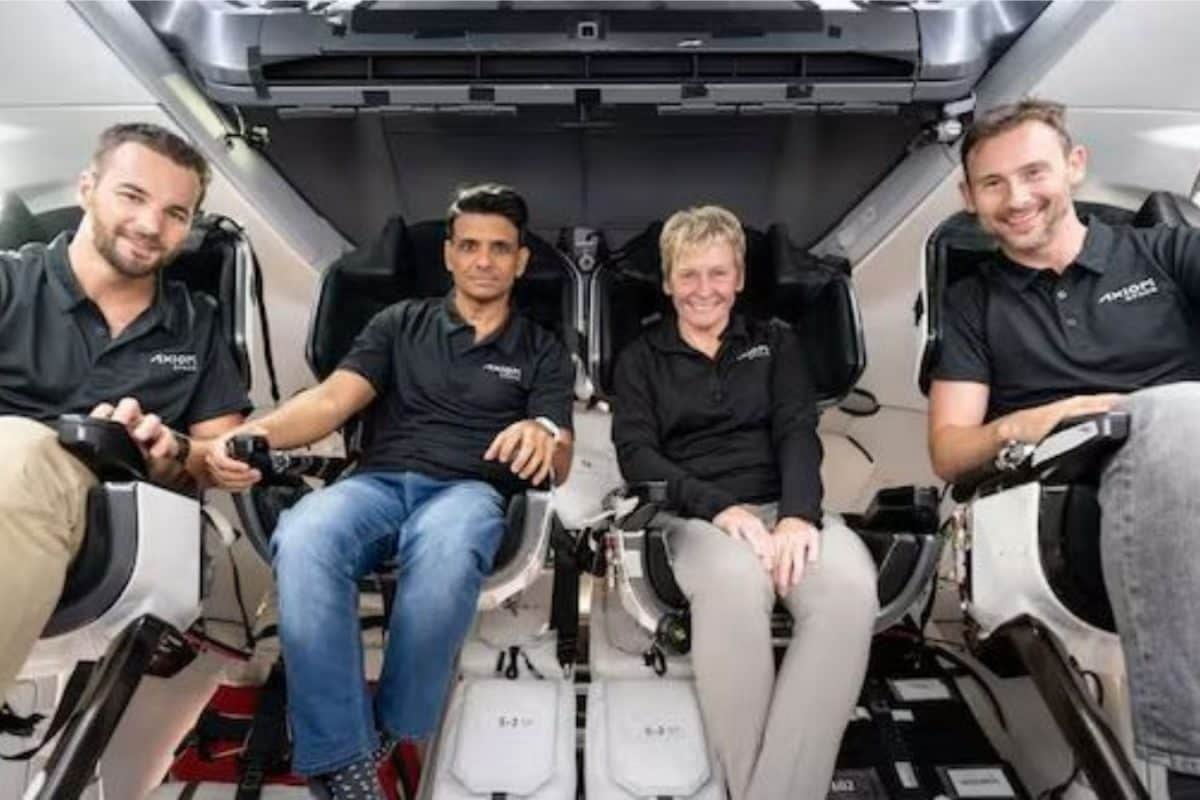

The Axiom-4 (Ax-4) mission, carrying Indian astronaut Shubhanshu Shukla to the International Space Station (ISS), is now targeting a launch date of June 19, 2025. This announcement by the Indian Space Research Organisation (ISRO) comes after a series of postponements due to technical issues and unfavorable weather conditions. The mission, a collaboration between Axiom Space, SpaceX, and NASA, is set to lift off from Launch Complex 39A at NASA's Kennedy Space Center in Florida aboard a SpaceX Falcon 9 rocket.
The Ax-4 mission has faced multiple delays. Originally scheduled for launch on May 29, 2025, the mission was initially deferred due to an issue with the electrical harness in the Crew Dragon module. Subsequent postponements were attributed to delays in the preparedness of the Falcon 9 vehicle, unfavorable weather in the ascent corridor, and the detection of an oxygen leak in the engine bay during a hot fire test preparation on June 8, 2025. Most recently, the launch was delayed due to a pressure signature indicating a leak in the aftmost segment of the ISS Zvezda Russian service module.
ISRO has been closely involved in the process, with its delegation recommending in-situ repairs or replacements and a low-temperature leak test to validate system performance before launch clearance. Following a coordination meeting between ISRO, Axiom Space, and SpaceX, it was confirmed that the liquid oxygen leak observed in the Falcon 9 launch vehicle has been successfully resolved. Axiom Space is also working with NASA to assess the pressure anomaly in the Zvezda Service Module on the ISS.
The Ax-4 mission holds significant importance for India's human spaceflight program. Group Captain Shubhanshu Shukla, a distinguished pilot in the Indian Air Force, will be the first Indian astronaut to visit the International Space Station and only the second Indian in space, following Rakesh Sharma's flight in 1984. Shukla's participation in the mission is part of India's Gaganyaan initiative, the nation's first human spaceflight endeavor. He will be conducting experiments developed by ISRO and Indian institutions, including studies on the cognitive effects of screen use, microbial adaptation, muscle atrophy, and crop resilience in microgravity.
The Ax-4 crew includes commander Peggy Whitson, a former NASA astronaut and director of human spaceflight at Axiom Space; pilot Shubhanshu Shukla of ISRO; and mission specialists Sławosz Uznański-Wiśniewski, a European Space Agency project astronaut from Poland, and Tibor Kapu representing the Hungarian Space Office. This mission marks the first time that India, Poland, and Hungary will participate in a mission aboard the International Space Station, representing each nation's first government-sponsored flight in over 40 years.
The mission's cost to India is approximately $70 million (Rs 550 crores), covering not only the journey but also an intensive training program that meets NASA standards. The training, lasting eight months to a year, involves partnerships with NASA, SpaceX, ESA, and JAXA, with astronauts undergoing 700 to 1,000 hours of training in safety, health, ISS systems, and launch operations.
While the Ax-4 mission is a significant step for commercial spaceflight, the delays highlight the challenges and complexities of transitioning from government-led to commercial space operations. The future of the ISS itself is also uncertain, with discussions about its potential deorbiting as early as 2026. Companies like Axiom Space are developing next-generation commercial space stations to replace the ISS, but these projects are still in early stages of development.
Despite the delays and uncertainties, the Ax-4 mission remains a beacon of opportunity for India, Poland, and Hungary, poised to leverage this mission to advance their national space programs.